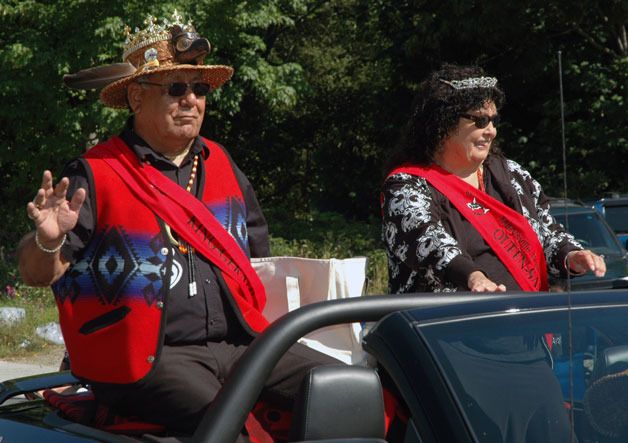TULALIP — The fourth annual “Tulalip Days” on Saturday, Aug. 11, drew more than 30 entries for its parade, from members of the Tulalip Tribes to representatives of the surrounding communities, but the morning’s bustling procession was intended as the prelude to the cultural educational opportunities that followed.
Tulalip Tribal Chair Mel Sheldon Jr. credited “Tulalip Days” organizer Frieda Williams and her crew of about 20 volunteers with drawing more parade entrants and more attendees to the reservation for each year’s event, in spite of obstacles such as the event’s scheduled date changing from year to year.
“We get great participation from our community and our neighbors,” Sheldon said. “The arts and crafts fair and exhibits not only help bring folks out here, but also show them who we are. That sharing is so important, even now. Sure, you can read about the Tulalip Tribes, or watch programs about us that have run on TV, but it’s that person-to-person sharing that helps give people a deeper understanding.”
According to Sheldon, Tulalip Tribal members benefit just as much from “Tulalip Days” as do their visitors. He credited the event’s activities with reacquainting families who might not have as many chances to catch up with each other, and agreed with several attendees that hands-on projects such as supervised drum-making help put Tribal members back in touch with their roots.
“This is the third year I’ve taught drum-making here,” said Tony Hatch, as he guided crowds of all ages through the steps of stretching fresh deerskins and tying them tight around their wooden drum rings. “You’ve got to have patience when you’re doing this. I can’t afford to have patience while I’m teaching it,” he laughed, “But it’s like cooking. If you’ve got a good mind and you’re not stressed out, what you’re doing will come out good. If not, then it won’t.”
“It’s their culture,” Tulalip Tribal member Rob Calkins said as his children, Davian and Kiawna, watched him thread hide strings through the deerskin. “It’s good for them to learn it, so they can carry it on.”


